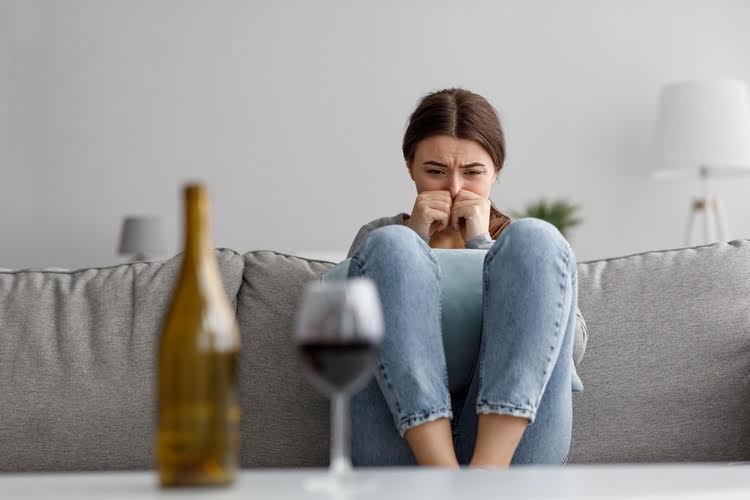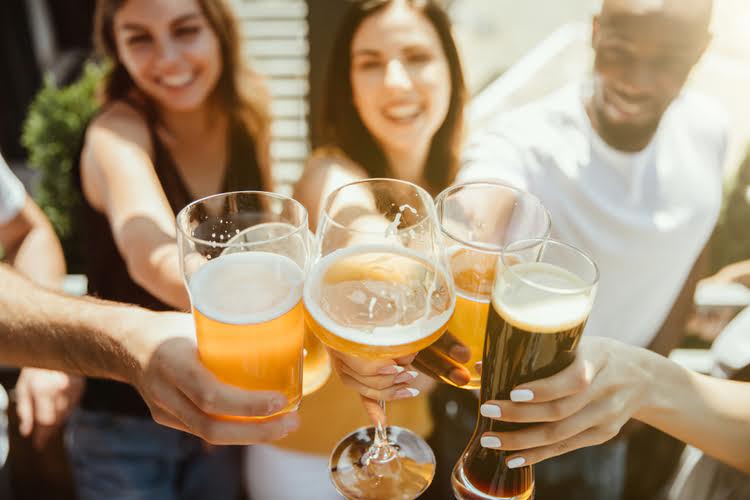24 aug The Effects of Alcohol & Caffeine on Dehydration
A cocktail with vodka and soda is less dehydrating than a shot of vodka. When a person has very high blood sugar, their body may borrow water from other areas to balance out the volume in the cells. Higher blood sugar may also cause the body to urinate more to get rid of this excess sugar, which can influence dehydration. Drinks containing high amounts of alcohol, caffeine, and sugar are most likely to perform as diuretics in the body and promote dehydration. Below is a list of drink types that fall within these categories. Yes, dehydration caused by alcohol consumption can contribute to skin dryness, leading to a dull complexion and an increased risk of wrinkles.
- Any beverage containing 4% and above alcoholic contents can cause dehydration.
- The hydration and dehydration level depends on the ABV of the beer.
- Dehydration is also a big part of why you get a hangover after drinking too much.
Why Are Cramps More Common in Women? A Gender-Specific Guide
These might lead to dehydration more quickly, according to a 2010 study 8 9. “Stronger alcohol might provoke more dehydration, but it truly has not been studied enough to know for sure,” she says, pointing to a 2017 study published https://ecosoberhouse.com/ in Nutrients. That paper summarizes that research into whether stronger alcohol is linked with increased dehydration is inconclusive. A 2016 study published in the American Journal of Clinical Nutrition assigned a beverage hydration index (BHI) to various drinks that would determine hydration status after ingestion. Added sugar creates extra acid, which makes it harder for your body to store water. Salty foods, like chips and other snacks, are also risky when it comes to staying hydrated.

Myth 2: Mixed Drinks Are Hydrating
It is recommended to drink over 20 ounces of water to rehydrate the body in about 45 minutes. Alcohol’s impact on the body is complex, affecting everything from sleep and digestion to inflammation and endocrine function. Instead of relying on rehydration aids or electrolyte powders, it’s more useful to understand the role of chemicals like acetaldehyde, the main culprit behind many of alcohol’s negative after-effects. Two beers a day may not pose an immediate threat to your liver, but they may have long-term effects.
Three Easy Ways To Prevent Dehydration From Alcohol
So far, science has not come up with a single magic natural cure that will solve the misery of having had one too many cocktails. But experts have pinpointed several practical remedies that may shorten the symptoms.

But over time, too much alcohol can set off diabetes and malnutrition, and diseases of the central nervous system and the liver. Our bodies are amazing organisms, especially when it comes to processing alcohol. Dr Karl explains why, if you’re drinking booze, what goes in is not equal to what comes out.
- I am a passionate beer connoisseur with a deep appreciation for the art and science of brewing.
- Alcohol poisoning, or alcohol overdose, occurs when you drink more than your body can handle.
- If you or someone else is experiencing these symptoms, seek immediate medical attention.
But, as Lindsey Pfau, M.S., R.D., points out, just one beer, for example, also has a lot of non-alcoholic fluids, which will help lessen the dehydrating effects of one beer. If you are experiencing dry mouth or skin, headaches, muscle cramps, marijuana addiction or dark-colored urine, these are signs of dehydration. You can reverse dehydration by taking in more fluids, but some people may be at risk of complications. Sugary drinks don’t have the same problems, unless you have difficulty regulating your blood sugar.
Your health is our #1 priority
Today we’re looking at alcohol, dehydration, and how the two can go hand-in-hand. What’s more, as the liver processes and does wine dehydrate you metabolises alcohol, it creates a compound called acetaldehyde, which is also known for its dehydrating effects. This, combined with the suppressed hormone, makes the body prone to dehydration both during and after alcohol consumption. If you have mild dehydration symptoms (e.g., thirst, dry mouth, dark yellow urine, headache), simply drinking an ample amount of plain water will likely sufficiently restore your fluid balance. Drinks with higher alcohol content tend to dehydrate you more quickly than those with lower alcohol content. For example, hard liquor will have a stronger dehydrating effect than beer or wine.
About Medical News Today
However, the diuretic effect of alcohol can lead to increased urination, causing a net loss of fluids over time. The liver converts the alcohol in beverages into roughly the same mass of water and some carbon dioxide. However, the diuretic effect of alcohol causes the body to eliminate more water than was gained from the drink. This loss of fluids can lead to dehydration, especially if adequate water is not consumed alongside alcoholic beverages.
If you don’t feel better from drinking plain water, try adding an electrolyte mix to water or drinking a low-sugar sports drink that contains electrolytes. When you have food in your stomach, alcohol is absorbed more slowly into your system. It’s best to drink while eating or just after, and to snack as you continue to drink. While the amount of alcohol you consume is the main determinant of how dehydrated you’ll eventually become, you’re better off starting a drinking session well hydrated as opposed to already dehydrated.


